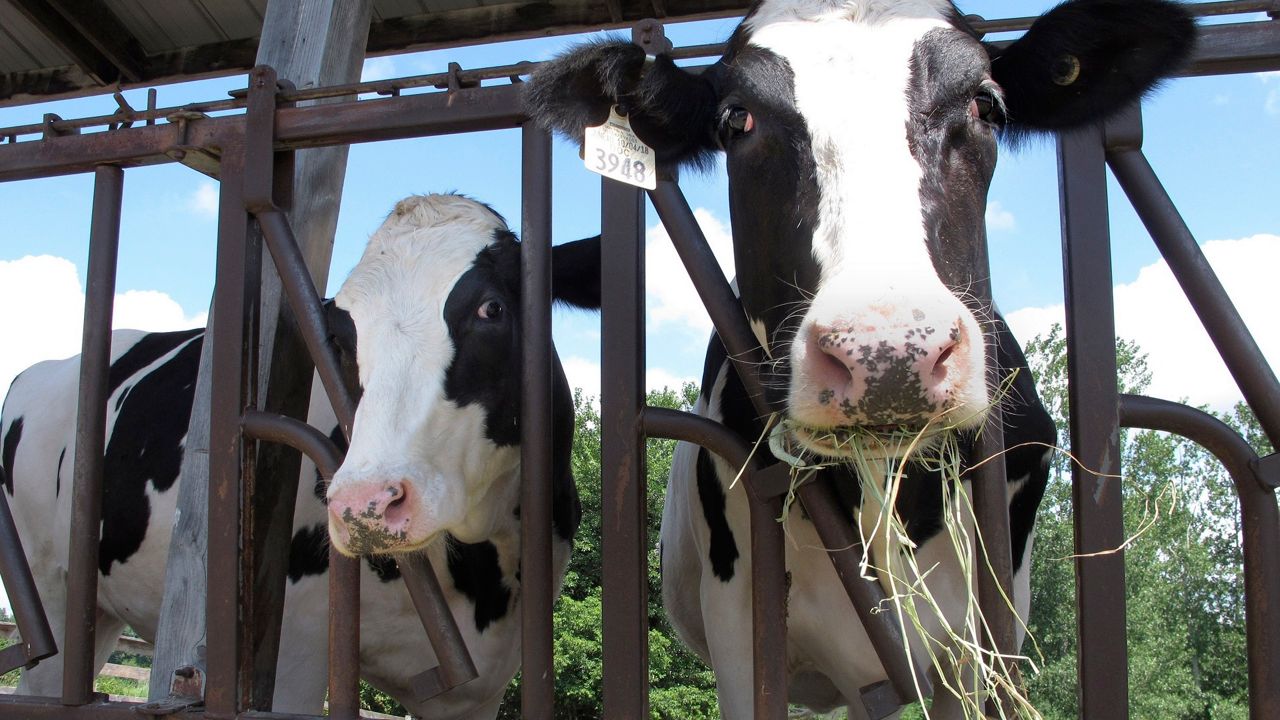Impossible burgers, Beyond sausage, Zero chicken: plant-based meat alternatives have been popping up all over in fast food joints and grocery stores.
Fake hamburgers taste a lot like the real thing, and the nutritional labels may make people think they have a similar nutritional value, researchers from Duke University say. But a new study shows they're not substitutes, at least in terms of nutrition.
“To consumers reading nutritional labels, they may appear nutritionally interchangeable,” said Stephan van Vliet, a researcher at Duke. “But if you peek behind the curtain using metabolomics and look at expanded nutritional profiles, we found that there are large differences between meat and a plant-based meat alternative.”
"A peanut is not really an egg," the study authors write. "We conclude that a plant burger is not really a beef burger."
Companies making meat alternatives have worked hard to make their products seem as close to the real thing as possible, the researchers say. That includes adding iron from soy and using extracts like beet, carrot and berry to make it appear "bloody."
The companies also try to get the same protein content by using plant proteins from peas, soy or other plants, according to the researchers. They'll also add vitamins or minerals.
But van Vliet and the other researchers used "metabolomics" to study just how the plant-based burgers stacked up against real burgers. They published their findings this week in the journal Scientific Reports.
They compared 18 samples of popular meat substitutes to 18 hamburgers made with ground beef from an Idaho ranch.
"The analysis of 36 carefully cooked patties found that 171 out of the 190 metabolites they measured varied between beef and the plant-based meat substitute," according to the university.
Metabolomics is the study of metabolites, small molecules that, in this case, make up the nutrients in a burger.
The real beef had 22 metabolites that were not found in the alternatives. And the plant-based versions had 31 metabolites not found in the traditional burgers.
"Several metabolites known to be important to human health were found either exclusively or in greater quantities in beef, including creatine, spermine, anserine, cysteamine, glucosamine, squalene, and the omega-3 fatty acid DHA," according to Duke. Those nutrients can play important roles in the human body, the researchers say.
“These nutrients are important for our brain and other organs including our muscles,” van Vliet said. “But some people on vegan diets (no animal products), can live healthy lives – that’s very clear.”
Even though the real beef and the alternative burger had some nutritional difference, van Vliet said that doesn't mean one is better than the other.
“Plant and animal foods can be complementary, because they provide different nutrients,” he said.
The study's authors say the world will need more research to really understand what these plant-based meat alternatives could mean in the longterm and what the health effects could be for people who eat them.



